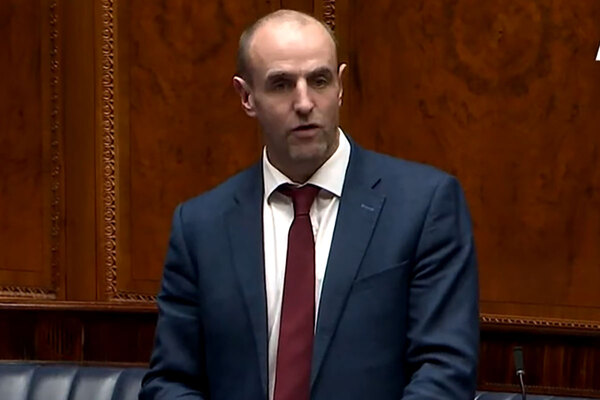You are viewing 1 of your 1 free articles
Scottish Government backs call for seven day limit on unsuitable temporary accommodation
The Scottish Government has backed a call for a seven day limit on staying in unsuitable temporary accommodation for all homeless people.
The government-appointed Homelessness and Rough Sleeping Action Group, chaired by the chief executive of Crisis, said the seven day maximum time in unsuitable temporary accommodation for families and pregnant women, which was introduced last year, should be extended to all homeless people in its latest interim report published today.
The government has backed all the recommendations of the report, apart from those which relate to devolving funding from the UK government to Scotland.
Since the action group was set up last year, it has already made recommendations on how to reduce rough sleeping and ultimately end it.
The latest report from the group looks at how temporary accommodation can be improved to ensure it “consistently provides the crucial safety net it is intended to provide”.
A recent Crisis Scotland report found Scottish councils could save £29m in 2017/18 if they moved all single people out of unsuitable temporary accommodation after a week.
The group calls on the Scottish Government to:
- Reduce the need for temporary accommodation by preventing homelessness and improving re-housing
- Ensure that support is in place from day one of a person staying in temporary accommodation
- Ensure that temporary accommodation should be of a “nature, quality, standard and timescale” to suit the household staying there and this should be “effectively regulated”. The Scottish Housing Regulator should be tasked with making sure temporary accommodation standards are being met by councils and housing providers
- Make the costs of homelessness and temporary accommodation “citizen funded”, through a local authority’s general fund and by Scottish Government grant-aided spending
- Push the UK government to devolve funding for temporary accommodation through housing benefits to Scotland
Councils are expected to develop five year rapid rehousing plans by the end of this year. The group said these plans could include increasing the number of social lets to homeless households to give them more access to settled accommodation.
Frontline staff should also have their duties expanded to carry out homelessness assessments. This could include devolving funds to frontline services to support a quick move from temporary accommodation, including access to Discretionary Housing Payments and the Scottish Welfare Fund.
Other recommendations that have been accepted include promoting the widest possible range of options for securing a settled home, setting up personal housing plans for those at risk of homelessness and introducing legally enforceable quality and support standards for temporary accommodation.
Kevin Stewart, housing minister, said: “I welcome the third set of recommendations from the action group and I’m very grateful for the work the group has done to engage with people who have experienced homelessness, frontline workers and colleagues working across the sector.
“These recommendations focus on preventing the need for temporary accommodation in the first place, ensuring the right support and standards are in place where it is needed and will play a vital role in meeting our commitment to end homelessness and transform temporary accommodation, backed by our £50m fund.”
Jon Sparkes, chair of the group and chief executive of national homelessness charity Crisis, said: “Temporary accommodation should be a short-term response to each person’s homelessness before they quickly move into a permanent and secure place to call home. At the heart of our recommendations are measures to prevent homelessness in the first place, ensure support is available and wider options for more settled housing.
“There should also be legally enforceable standards and a time limit on housing that doesn’t meet basic needs. To implement these changes, the funding system should be fairer and we look forward to working with the minister and his colleagues on taking plans forward.”








